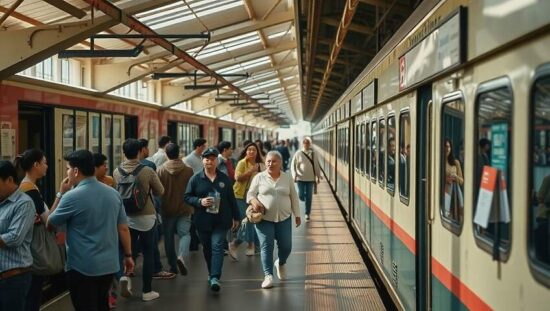The abrupt cancellation of planned government subsidies for long-distance rail services has ignited a firestorm of criticism, raising serious concerns about the financial stability of rail operators and the potential impact on passenger fares. The decision, swiftly reversed by the Ministry of Transport under Minister Patrick Schnieder (CDU), threatens to burden companies like FlixTrain and Deutsche Bahn with significant losses.
The initial plan involved a €105 million relief for rail operators regarding track usage fees. Now, these operators are required to bear the full cost, a shift rail associations Mofair and VDV have confirmed to “Der Tagesspiegel”. Green Party rail policy spokesperson Matthias Gastel accused the Ministry of Transport of “obviously careless work” directly blaming Minister Schnieder for potential cuts to essential rail connections.
The rebuke isn’t limited to opposition benches. Isabel Cademartori, the SPD’s transport policy spokesperson, highlighted the budget allocation for track pricing support in the 2025 budget. “It’s now the responsibility of the Ministry of Transport to ensure the full release of these funds” she stated, implying a lack of foresight and a potential misallocation of resources.
Martin Burkert, leader of the railway union EVG, warned of broader consequences extending to passengers and employees. He criticized what he termed the “schizophrenic” nature of political demands, pointing to the expectation of profitable operations alongside pressures for frequent and extensive regional services. The simultaneous increase in track usage fees driven by political choices, he argued, leads to “uncertainty for employees and significant fare increases for customers.
A Ministry spokesperson ruled out the possibility of retroactive relief for track usage fees, citing a decision by the Bundestag’s audit committee. This committee had previously requested justification for the existing subsidy practices, prompting a delayed response resulting in the complete withdrawal of funding for this year. The Ministry claims to be actively developing new regulations, slated to be implemented in 2026.
While passengers can expect fare stability in 2026, at least according to a Deutsche Bahn spokesperson, the longer-term implications of this abrupt policy shift remain deeply troubling. Critics argue this action undermines efforts to bolster the railway network and promote sustainable transportation, particularly as Germany strives to meet its climate goals. The incident underscores a systemic tension between political promises of an expanded rail network and the financial realities underpinning its operation, leaving the future of long-distance rail services hanging precariously in the balance.





